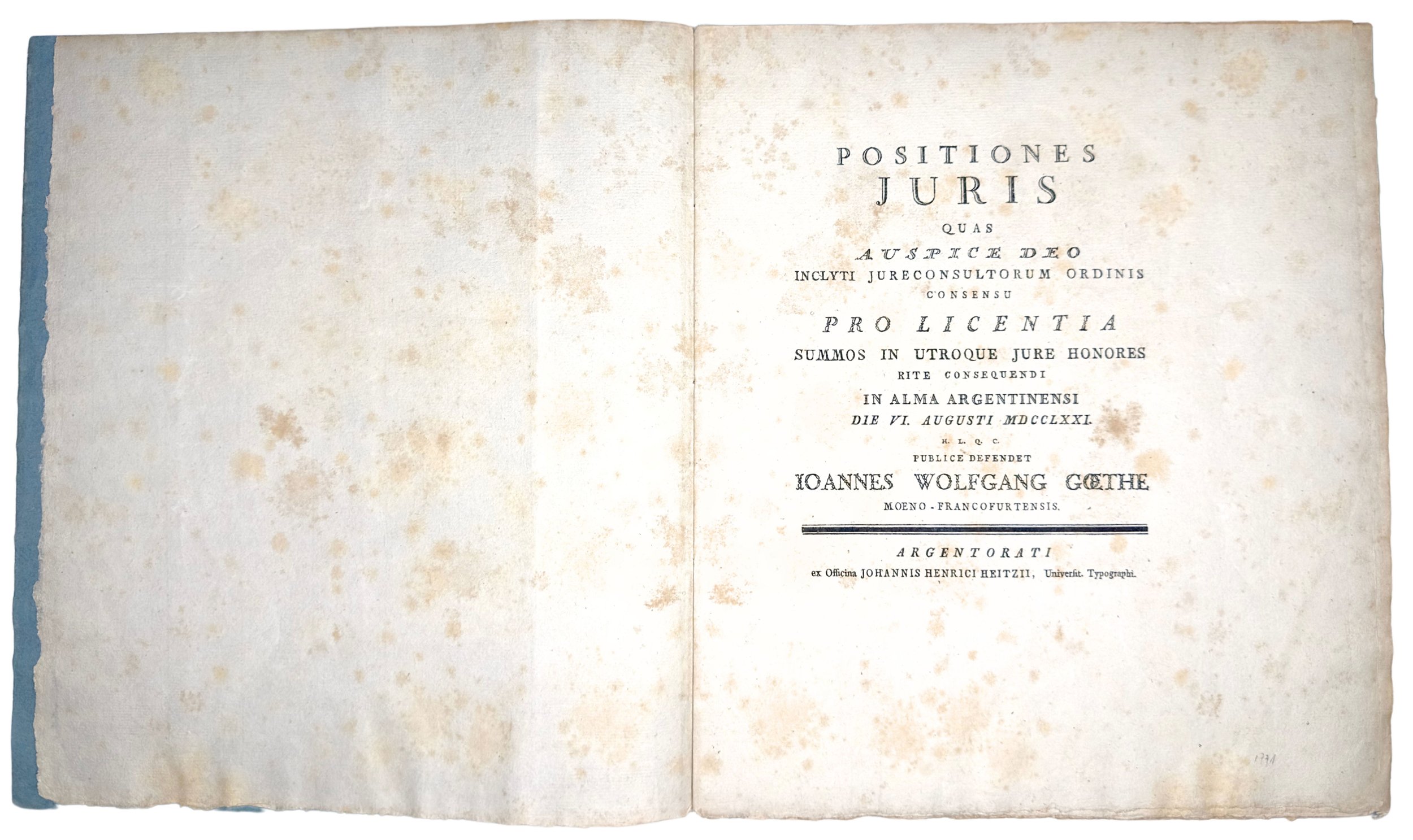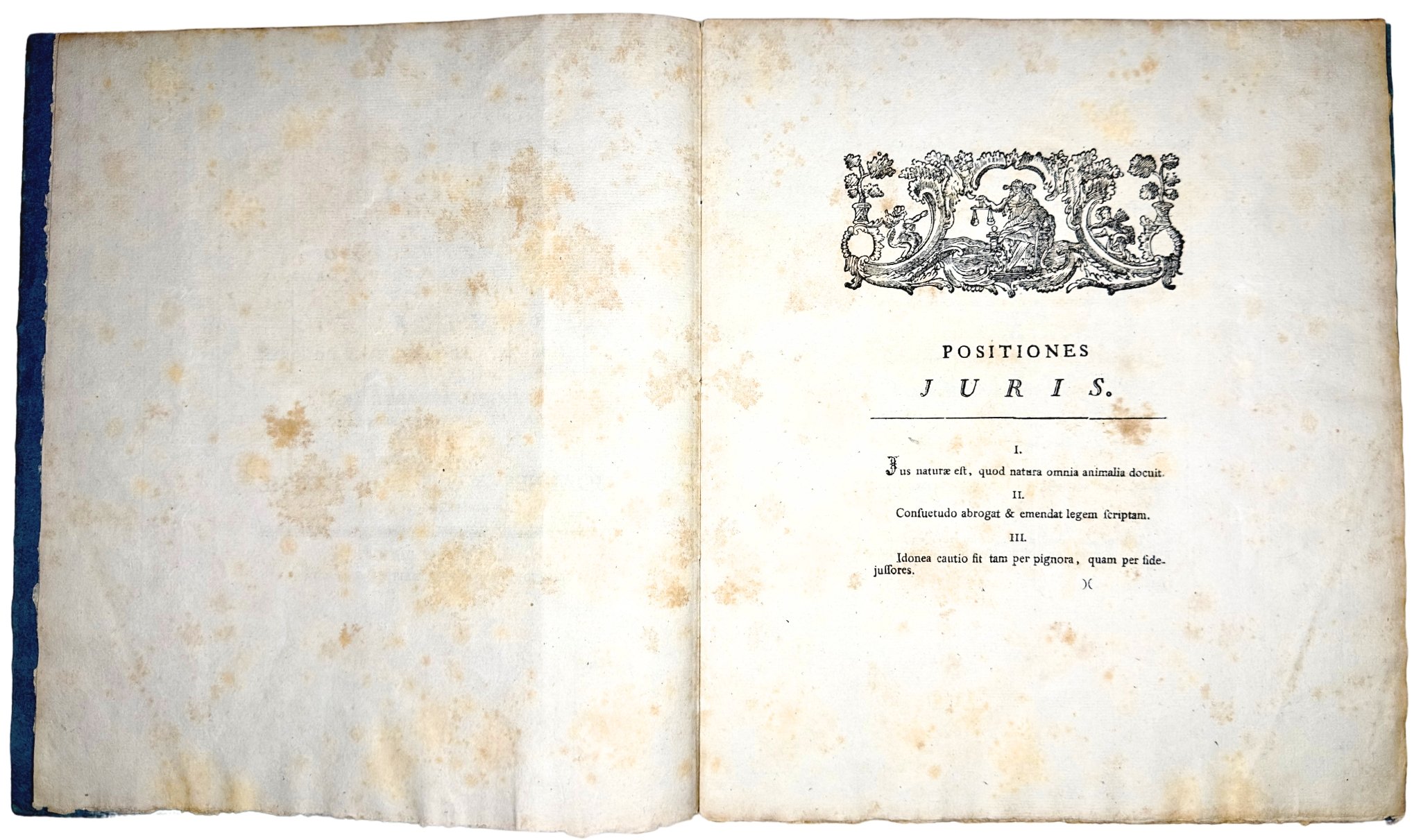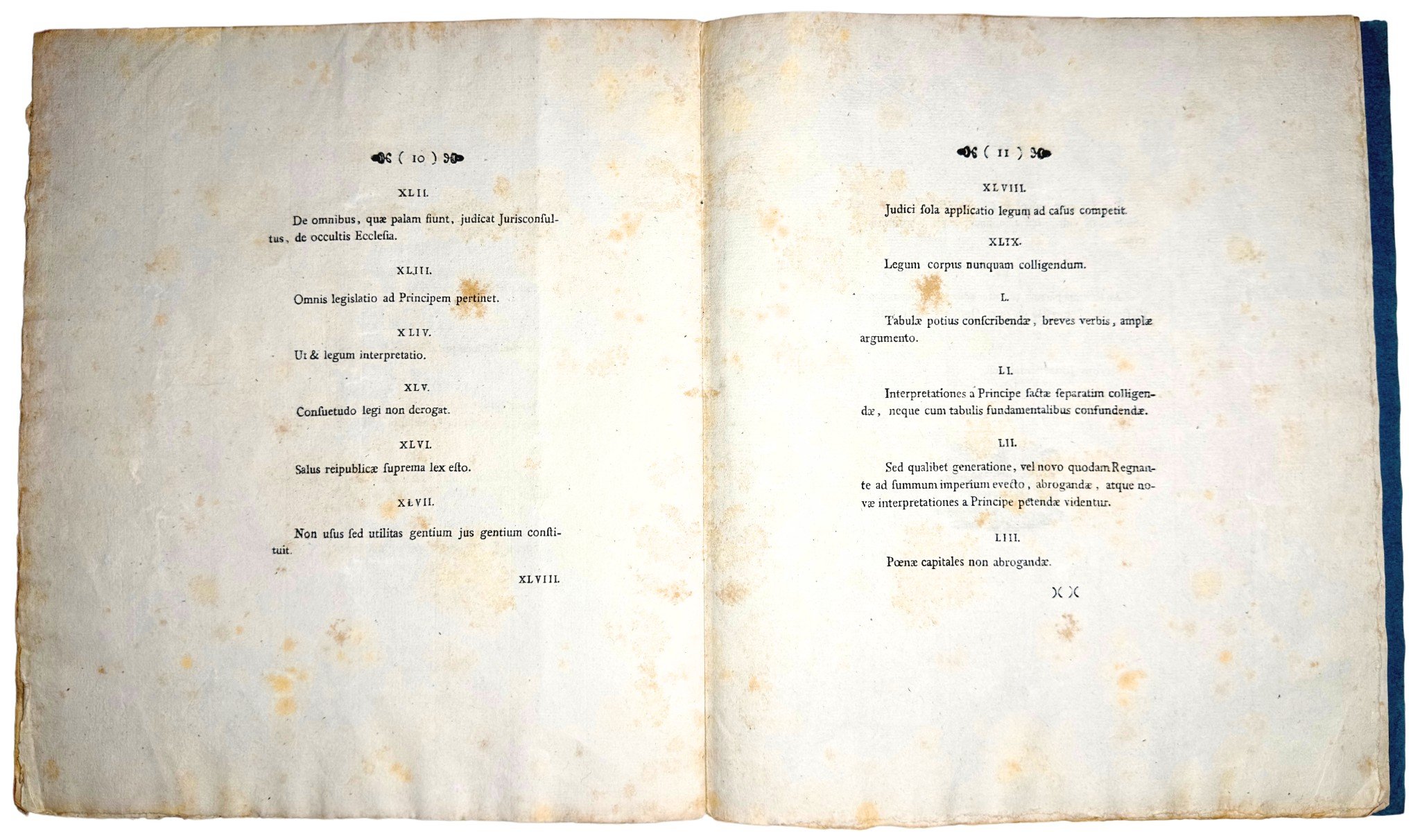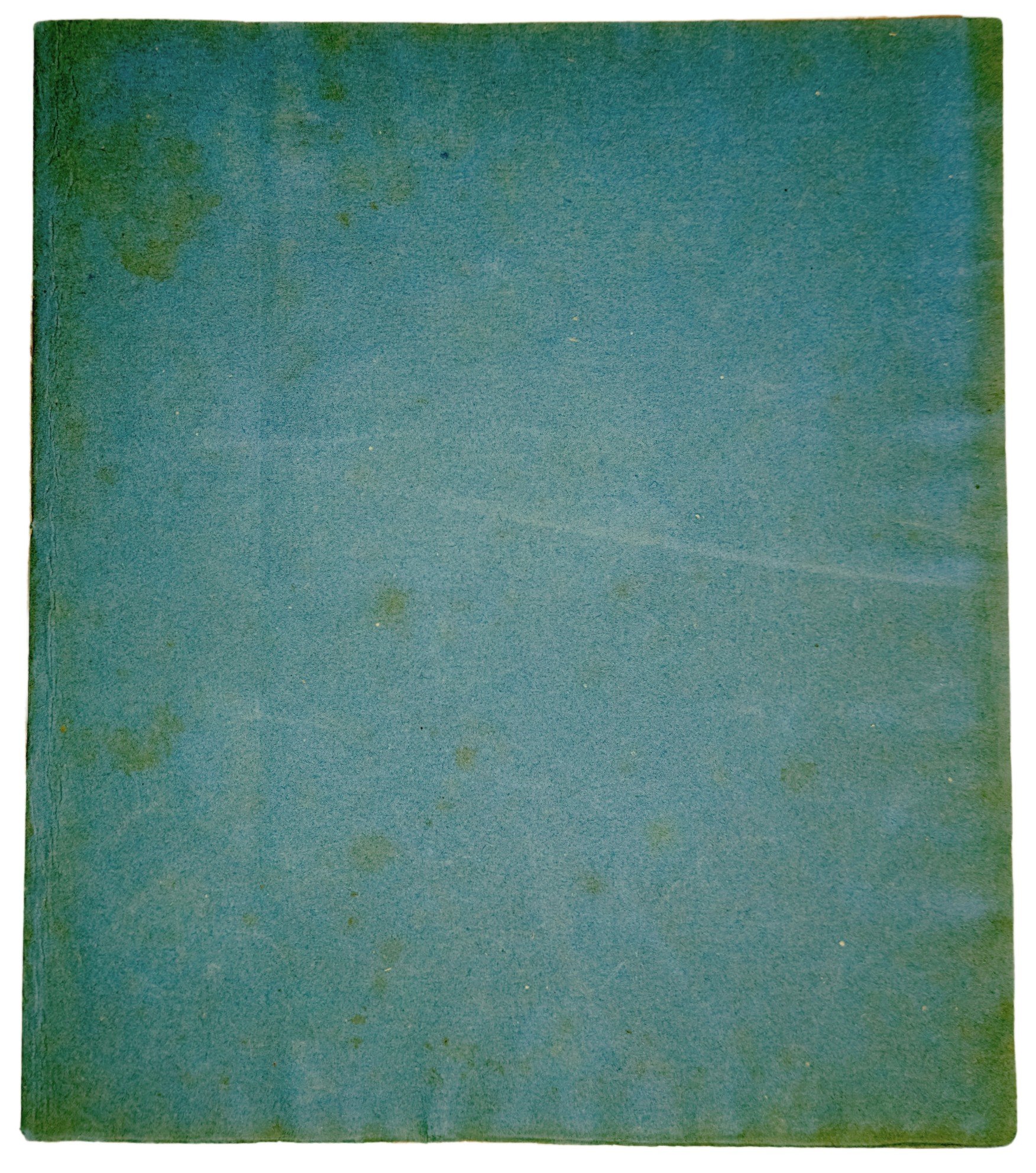Goethe’s Dissertation: By far the rarest of all his First Editions – Unique Copy: uncut and unopened





Positiones Juris / quas /auspice Deo … In alma Argentinensi / Die VI. Augusti MDCCLXXI / Publice defendet / Ioannes Wolfgang Goethe.
Strassburg, Johann Heinrich Heitz, 1771
1 leaf (blank), 12 pages, 1 leaf (blank). Collation : (1) ) (4 )( )(2 (1).
Laid paper without watermark.
Quarto (276 x 258 mm : uncut with témoins, still unopened).
Blue original wrappers (double).
Most likely the only copy in private hands
Goethe’s Dissertation, and the rarest of all his writings. All in all there are no more than a handful of copies (no more than ten) known, all in public institutions. But what makes this copy unique above its legendary rarity (deplored already in the early 19th century) is the fact that it is still in exactly the form in which it was published: in the original double wrappers, uncut and – a sensation – unopened after 253 years.
Condition: Some slight stains throughout, stronger on the first two leaves (with the title). But else in the most unbelievable original condition.
Provenance: European private collection.
Literature: Kippenberg Kat. I, 403 (in-4, but cites no dimensions). Yale, Speck collection, 698: 200mm height (!). More bibliographical and other information on request.
Please note: All important first editions of Goethe (Werther, Faust – all three of them, Das Römische Karneval, Tasso, Wahlverwandtschaften etc.) are in our stock in distinguished copies, some of them the finest in the market.
Goethe’s Positiones Juris: A Rare Glimpse into the Young Poet’s Legal Mind
In 1771, Johann Wolfgang von Goethe, then just 21, faced the rigorous final steps of his legal studies in Strasbourg: completing a dissertation to prepare for his oral defense. Despite limited enthusiasm for law, Goethe chose a church law topic, an area he admitted was “almost more familiar than world history.” His father, a respected legal counselor in Frankfurt, encouraged him to aim for a solid legal foundation, yet Goethe privately hoped his controversial dissertation might never see the light of day. Indeed, it was deemed problematic by the faculty, failing to pass censorship and instead left unpublished.
Goethe’s legal studies had always been unconventional. He started law in Leipzig in 1765 but often skipped lectures, finding himself more inspired by literature and the arts. His relationship with his professor, Johann Gottlieb Böhme, was equally colorful; Goethe’s classroom antics, including caricatures of judges, left Böhme frustrated with the young Goethe’s lack of dedication to jurisprudence. It was only after leaving Leipzig and returning to his studies in Strasbourg that Goethe reluctantly resumed his legal path, drafting the now-lost dissertation manuscript solely to fulfill his father’s wishes. The faculty ultimately suggested he complete his requirements through a much simpler set of “Positiones Juris”—statements in law—through which he was formally examined in August 1771.
If you would like to receive further information on this work, please contact us.



